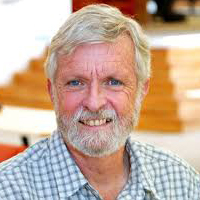Rob Boyd

Rob Boyd is Professor of Anthropology at UCLA. He studies the evolution of cooperation in large groups, and is the co-author of numerous books on cultural evolution, including Not By Genes Alone.

Rob Boyd is Professor of Anthropology at UCLA. He studies the evolution of cooperation in large groups, and is the co-author of numerous books on cultural evolution, including Not By Genes Alone.
Marin Alsop made history with her appointment in 2007 as music director of the Baltimore Symphony Orchestra, the first woman to head a major American orchestra. This mirrored her ongoing success in the United Kingdom where she was Principal Conductor of the Bournemouth Symphony from 2002- 2008 and is now Conductor Emeritus.
Read MoreAdam Alter is an associate professor of marketing at New York University’s Stern School of Business with an affiliated appointment at the NYU Psychology Department where he studies human judgment and decision-making.
Read MoreKyle Patrick Alvarez is a Los Angeles–based director, writer, producer, and editor. The Stanford Prison Experiment marks his third film as a director. It premiered earlier this year at the Sundance Film Festival where it won two awards and will be released in theaters this summer through IFC Films.
Read MoreMariam Aly is a professor of psychology in Columbia University, where she spends her days thinking about, researching, and teaching cognitive neuroscience: the study of how the brain supports the way we think.
Read MoreCarmelo ‘Nino’ Amarena is an electrical engineer with expertise in the field of digital wireless communications. He is also an inventor, designing a personal rocketpack called the ‘Thunderpack,’ which uses a peroxide-based reciprocating engine.
Read MorePaula Amato is an associate professor of obstetrics and gynecology at the Oregon Health and Science University who specializes in reproductive endocrinology and infertility. Some of her research explores the ways to reprogram aged, differentiated cells into pluripotent cells that can give rise to any cell type.
Read More